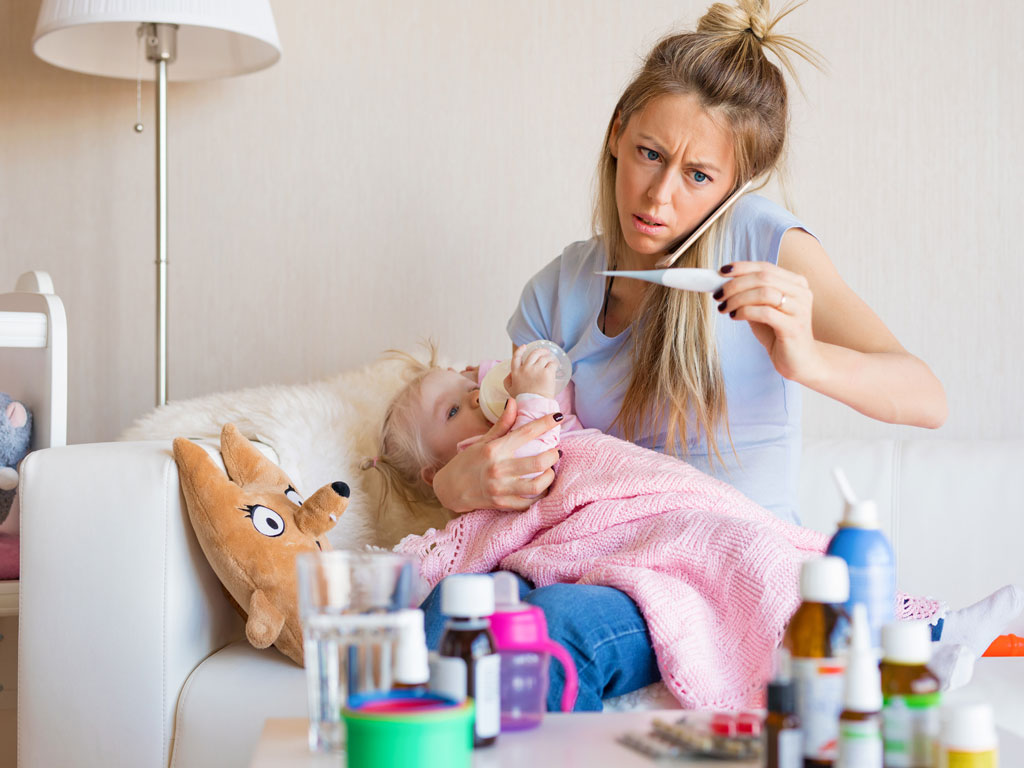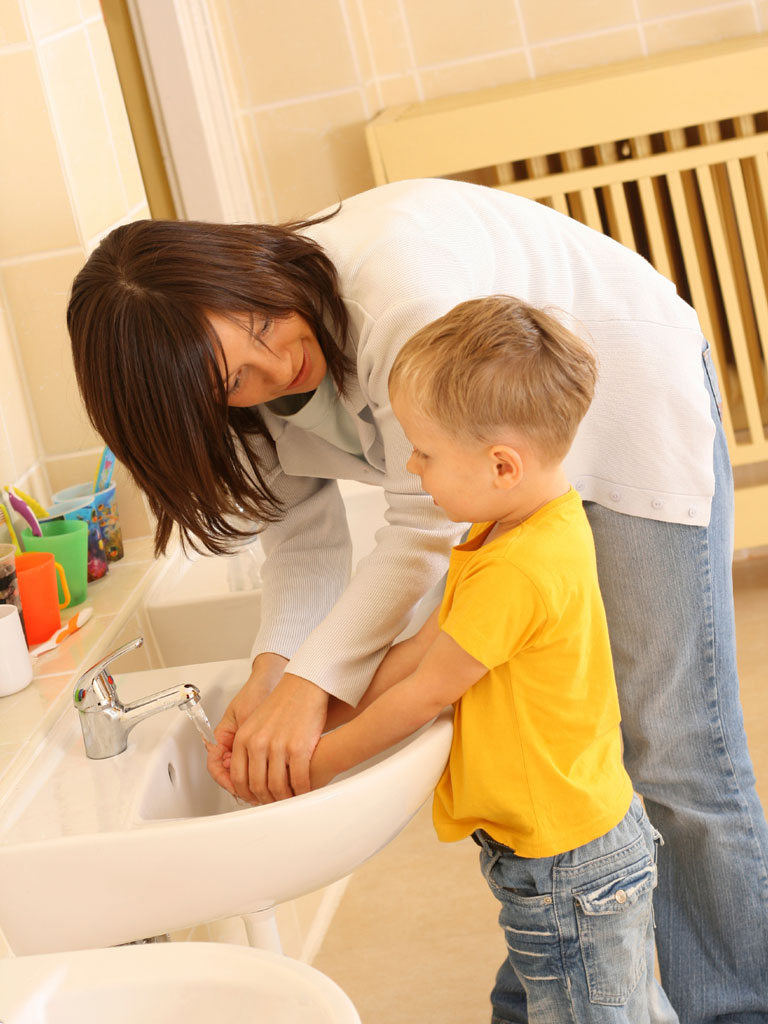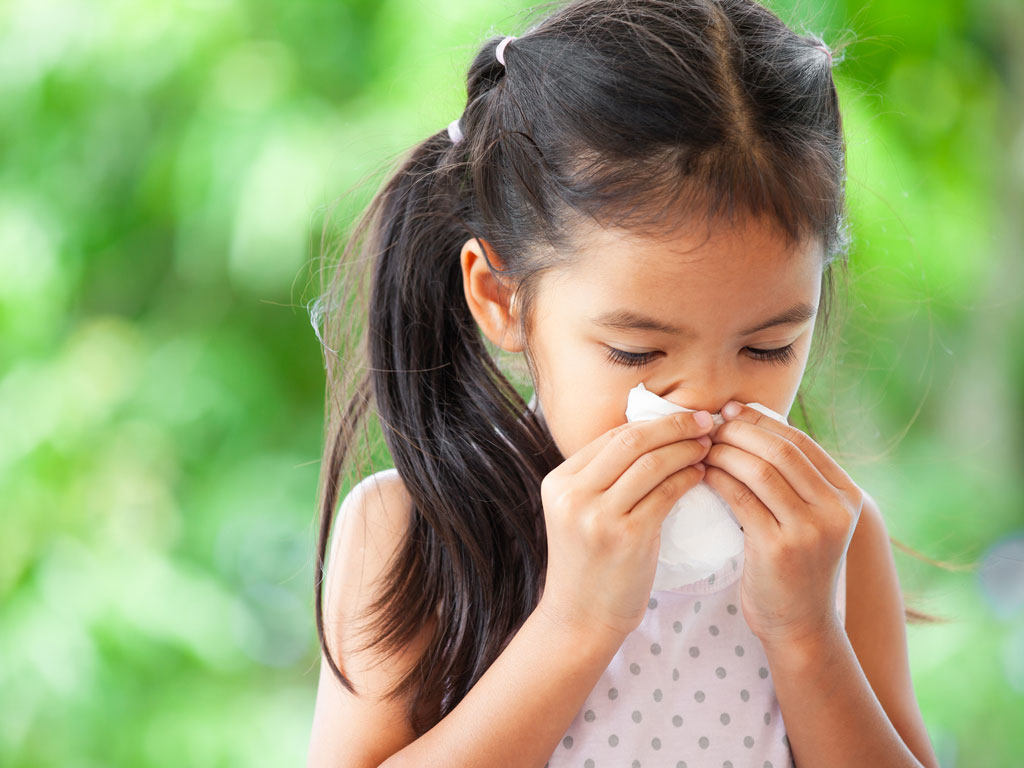by Dr. Vinson Diep and Stephanie Lopes
Your child is finally old enough to go to daycare or preschool. You may be feeling alleviated that you will now have some time to focus on your many other tasks while they develop their academic, social, and emotional skills. However, your child constantly needs to stay home because they are sick!
Why do children who go to daycare get sick so often? Board-certified pediatrician Dr. Vinson Diep, whose office is located at Kapiolani Medical Center for Women & Children, provides some insight into this phenomenon known as “daycare syndrome” as well as how to care for and prevent common daycare illnesses.
“At daycare, children have increased exposure to viruses and other germs,” explains Dr. Diep. “It is actually expected that children in daycare average somewhere between six to twelve colds per year, which fortunately have a self-resolving course.”
So if your little one seems like they are constantly carrying home a new sickness from daycare, realize this is typical, and most of these daycare diseases have basic treatments and resolve without complications.
The Common Cold
“The most common diseases are viral upper respiratory tract infections, which is essentially the common cold,” says Dr. Diep. “There are many viruses that cause the common cold, and the usual symptoms are fever, cough, congestion, runny nose, and sore throat. These symptoms may be expected to last for three to seven days.”
How can the common cold be treated? “I generally encourage supportive or comfort care, meaning that the goal is to make the child comfortable while their body fights off the virus itself,” says Dr. Diep.
“I usually recommend fever-reducing medication such as acetaminophen (Tylenol) or ibuprofen (Motrin) if the child has a fever. If you don’t want to give medication, you can also just use cool compresses or lukewarm baths to help keep the body temperature lower. Nasal clearance is also important, so saline (salt water) sprays into the nose or nasal irrigation is helpful,” Dr. Diep explains.
“I also usually don’t recommend over-the-counter cough medications for kids because I feel they don’t work too well,” Dr. Diep adds. “Instead, I usually prescribe antihistamines such as cetirizine (Zyrtec), levocetirizine (Xyzal), loratadine (Claritin), or fexofenadine (Allegra). Contrary to what most people believe, antibiotics only work for bacterial infections, and most of these illnesses from daycare are caused by viruses, so antibiotics are not effective.”

Hand-Foot-Mouth Disease, Ear Infections, Pneumonia, and Oral Thrush
Hand-foot-mouth disease is a viral infection characterized by painful red blisters or rashes on the hands, feet, mouth, throat, or diaper area. Keiki can also contract a fever, bellyaches, and fussiness. “Hand-foot-mouth disease is self-limiting and again, comfort, care and hydration are important,” Dr. Diep explains.
An ear infection and pneumonia are also highly contagious sicknesses that can be caught when keiki are around their peers at daycare. “Ear infections and pneumonia may need antibiotics after consulting with your pediatrician,” says Dr. Diep, so it is important to speak with your physician if your child has an ear infection or symptoms of pneumonia, such as a cough with mucus, vomiting, diarrhea, fatigue, and fever.
Another common daycare disease in younger children is oral thrush, a yeast infection characterized by cracked skin in the corners of the mouth or white patches that can’t be wiped away on the lips, tongue, or inside the cheeks. “Oral thrush may require an antifungal medication as well,” Dr. Diep says, so if your child is experiencing oral thrush symptoms, speak with your pediatrician.
When to See a Pediatrician
While most illnesses from daycare syndrome will resolve on their own, there are some key factors that will warrant a visit with the doctor.
“A daily fever lasting more than five days would be a cause for evaluation by your pediatrician,” explains Dr. Diep. “Other symptoms such as inability to eat or drink, only urinating one to two times per day, and the inability to get out of bed are other red flag signs.”
The frequency of sickness may also freak out parents. While usually there is nothing to worry about, your pediatrician can evaluate if your child is getting sick too often, causing concerns for immunodeficiency. “In general, immunodeficiency concerns would include frequent antibiotic use, frequent bacterial pneumonias or ear infections, frequent abscesses/boils, and failure to gain weight. Also, a family history of immunodeficiency should also trigger you to seek the advice of your pediatrician,” Dr. Diep elaborates.

Preventing Daycare Syndrome: Vaccines, Sleep, Nutrition, and Hand Washing
While it might seem inevitable that your child catches some sort of illness at daycare, there are a number of ways to prevent sickness.
“The number one way to keep your child safe is to make sure they are up to date with their vaccinations,” explains Dr. Diep. “We have seen a recurrence of diseases that are preventable by vaccines, such as measles, mumps, chicken pox, influenza, and even polio. Keeping your child safe from these diseases starts with making sure they are vaccinated and protected.”
Sleeping and eating are also key to a healthy immune system. “Make sure that your child is getting enough sleep so that they are well-rested for school,” Dr. Diep elaborates. “Nutrition is also important, so ensure a well-balanced diet with fruits, vegetables, and non-sugary drinks.”
“Another great way to prevent the spread of viruses and bacteria is handwashing,” says Dr. Diep. “Encourage hand hygiene as best as possible for your children and model good behavior as adults.”

The Good News
While taking care of a sick child is never fun, the good news is that while our young children catch colds at daycare, they are building their immune system so they can stay in school in the future.
“Children are training their immune system to recognize these viruses later on in life, which is why you don’t see middle and high school students frequently ill. These kids who catch colds at daycare will have less illnesses as they get older,” concludes Dr. Diep, who can be reached at 808-945-9955 or pediatrics@doctordiep.com.





